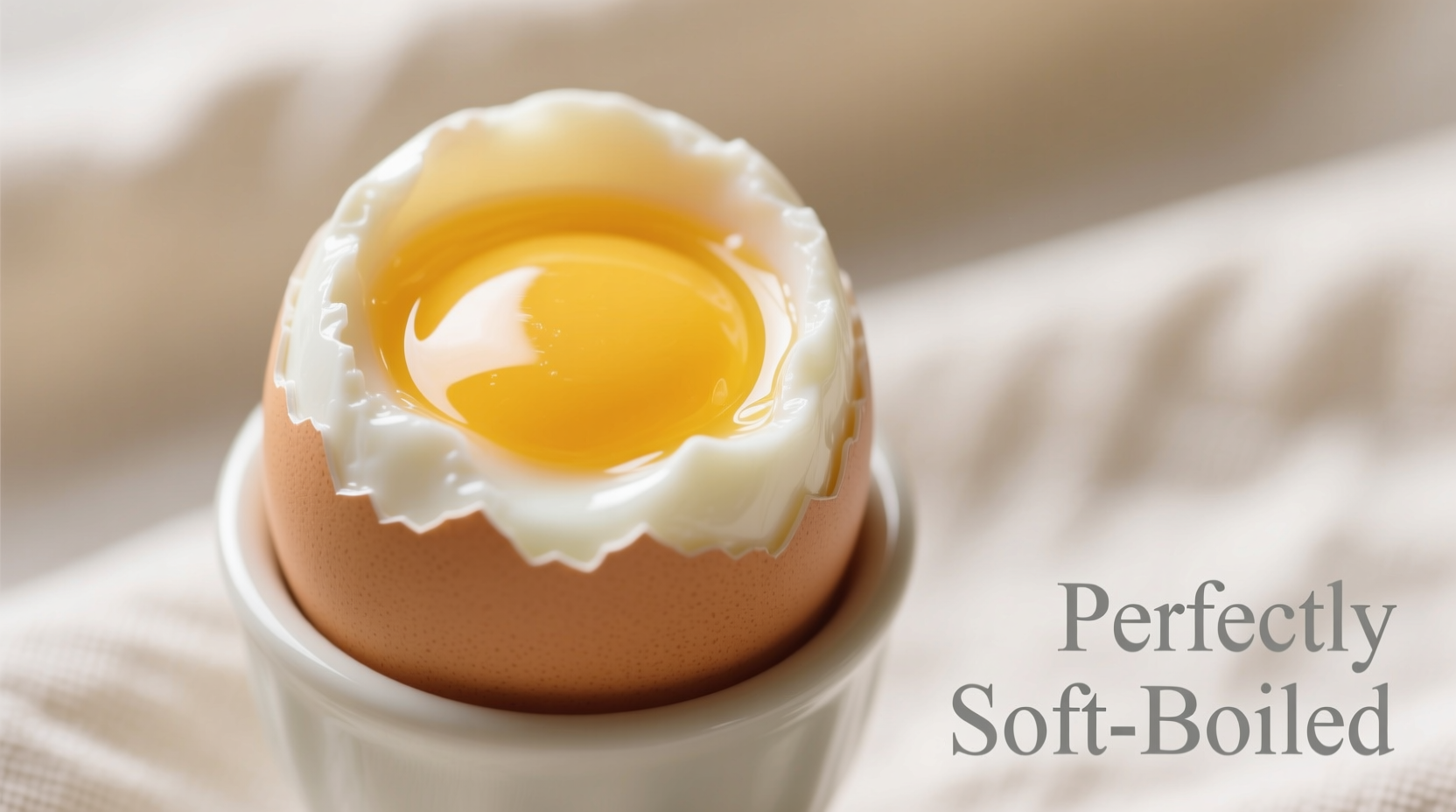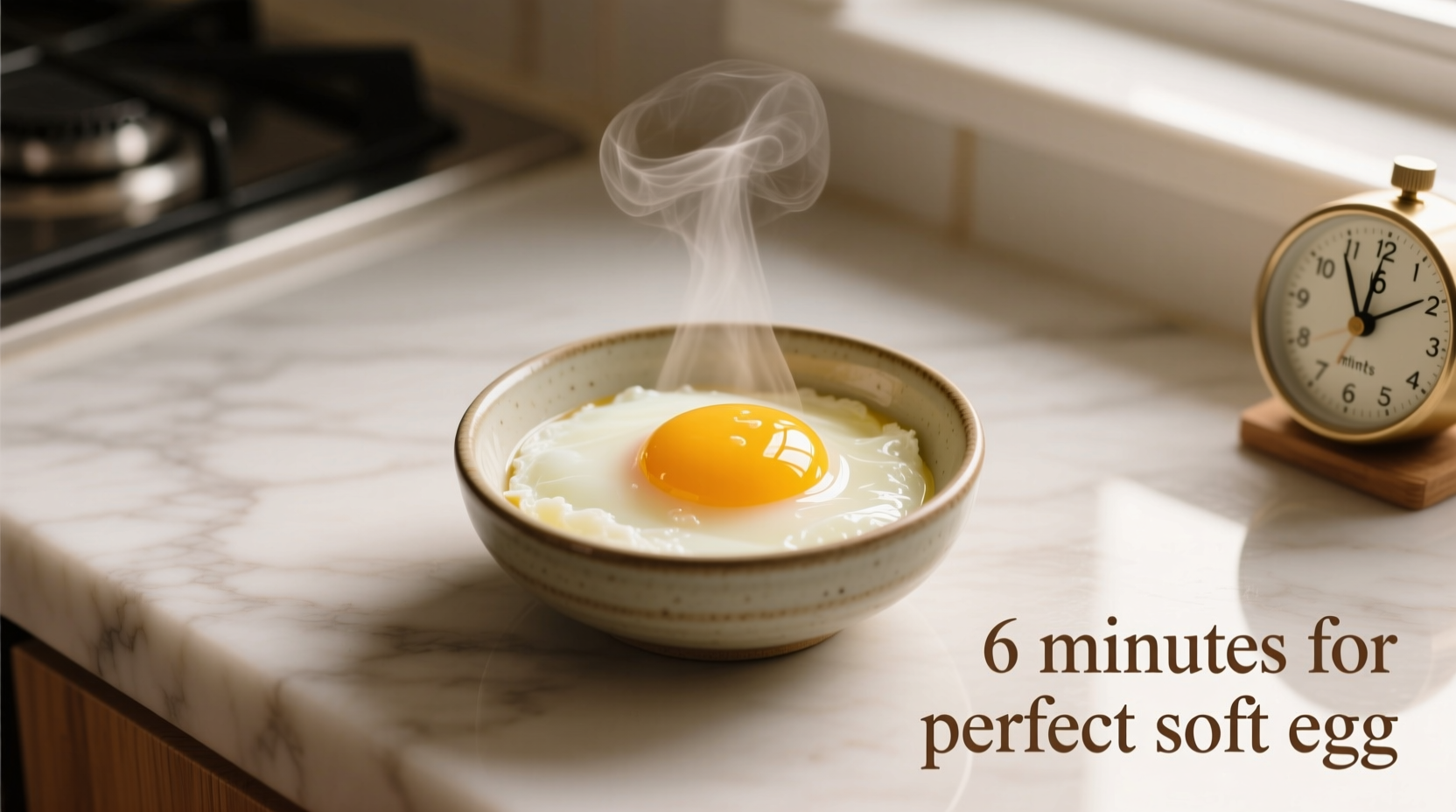Ever struggled with inconsistent soft-boiled eggs? You're not alone. Getting that perfect runny yolk with set whites requires precision timing and understanding the science behind egg protein coagulation. This guide delivers exact cooking times tested by culinary professionals, so you'll achieve restaurant-quality soft eggs every time - no guesswork needed.
Why Perfect Timing Matters for Soft-Boiled Eggs
Unlike hard-boiled eggs where timing is more forgiving, soft-boiled eggs live in a narrow window of perfection. Cook them 30 seconds too long and you'll lose that luxurious runny center. Undercook by the same margin and you'll risk unsafe egg whites. The American Egg Board confirms that proper timing ensures both food safety and ideal texture, with whites fully set at 140°F (60°C) while yolks remain fluid below 158°F (70°C).
Factors That Change Your Cooking Time
Before you drop eggs in water, consider these critical variables that affect your soft-boil timing:
| Factor | Impact on Cooking Time | Adjustment Needed |
|---|---|---|
| Egg size | Large eggs cook slower than medium | +30-45 seconds for extra large/jumbo |
| Starting temperature | Refrigerated eggs need more time | +30 seconds if cold from fridge |
| Altitude | Higher elevations lower boiling point | +15-30 seconds per 1,000 ft elevation |
| Water volume | Less water cools faster when adding eggs | Maintain rolling boil with sufficient water |
Your Step-by-Step Soft-Boiled Egg Guide
Follow this professional method for perfect soft eggs every time. These instructions assume large, room-temperature eggs at sea level:
Preparation Phase: 2 Minutes
Use fresh eggs (within 7-10 days) for best results. Older eggs peel easier but have thinner whites that may not set properly for soft-boiling. Gently place eggs in a single layer at the bottom of a saucepan. Cover with cold water by at least 1 inch. Adding 1/4 teaspoon of vinegar per quart of water helps prevent whites from spreading if shells crack.
Cooking Phase: Precise Timing
Bring water to a rolling boil over medium-high heat. Once boiling, reduce heat to maintain a gentle simmer (small bubbles rising steadily). Start your timer immediately:
- 4 minutes: Ultra-runny yolk, barely set whites (for immediate consumption)
- 4.5 minutes: Ideal runny yolk with fully set whites (recommended starting point)
- 5.5 minutes: Slightly thickened yolk center with firm whites
- 6 minutes: Creamy but spoonable yolk, perfect for egg toast

Cooling Phase: Critical 15 Seconds
When timer ends, immediately transfer eggs to an ice water bath for exactly 15 seconds. This stops residual cooking while making eggs easier to handle. Any longer in ice water and the thermal shock may cause cracking. The USDA Food Safety and Inspection Service recommends this rapid cooling step to prevent overcooking while maintaining food safety.
Visual Doneness Cues Beyond Timing
While timing provides the foundation, these visual indicators confirm perfect soft-boiled eggs:
- White appearance: Completely opaque with no translucent areas
- Yolk movement: Gentle shake produces noticeable liquid movement
- Shell separation: Membrane pulls away slightly from shell at wide end
- Temperature test: Yolk feels warm but not hot when touched (140-150°F)
Avoid These Common Soft-Boiled Egg Mistakes
Even with perfect timing, these errors can ruin your soft-boiled eggs:
- Using boiling water for cooking: Maintain a gentle simmer, not rolling boil, to prevent cracking
- Skipping the ice bath: Residual heat continues cooking yolks for 30-60 seconds
- Peeling too soon: Wait at least 1 minute after cooling for easier peeling
- Ignoring altitude adjustments: At 5,000 feet, add 1-1.5 minutes to standard times
Storing and Serving Your Perfect Soft Eggs
Soft-boiled eggs taste best immediately but can be stored unpeeled in the refrigerator for up to 2 days. To reheat, place in 140°F water for 1 minute - any hotter and you'll overcook the yolk. Serve in egg cups with crusty bread for dipping, or carefully peel and place atop ramen, avocado toast, or grain bowls. The Food Network's test kitchen confirms that properly cooked soft-boiled eggs maintain food safety when consumed within 2 hours of preparation.
Troubleshooting Your Soft-Boiled Eggs
Having issues? Match your problem to these solutions:
- Runny whites: Increase time by 30 seconds or ensure water maintains gentle simmer
- Overcooked yolks: Reduce time by 30 seconds or shorten ice bath to 10 seconds
- Cracked shells: Add vinegar to water and lower eggs gently with spoon
- Difficulty peeling: Use slightly older eggs (1-2 weeks) or increase cooling time to 20 seconds











 浙公网安备
33010002000092号
浙公网安备
33010002000092号 浙B2-20120091-4
浙B2-20120091-4